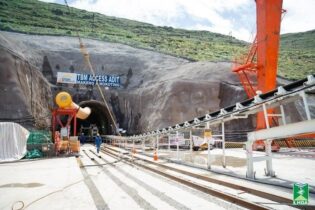
A new study has found that future groundwater contribution to sea level will increase as groundwater extraction increases.
The study does not change the overall picture of future sea level rise, but provides a much more accurate understanding of the interactions between water on land, in the atmosphere, and the oceans, which could help to improve future models of sea level rise.
“Projecting accurate sea level rise is important, because rising sea level is a threat to people who live near the ocean and in small islands,” explains IIASA researcher Yoshihide Wada, who led the study.
Sea level has risen 1.7 mm per year over the 20
th and the early 21
st century, a trend that is expected to continue as climate change further warms the planet.
A widening gap
Researchers have attributed the rising seas to a combination of factors including melting ice caps and glaciers, thermal expansion (water expands as it gets warmer), and the extraction of groundwater for human use.
Land water contributions are small in comparison to the contribution of ice melt and thermal expansion, yet they have been increasing, leading to concerns that this could exacerbate the problem of sea level rise caused by climate change.
Previous studies, including estimates used in the IPCC Fifth Assessment Report, had assumed that nearly 100% of extracted groundwater ended up in the ocean.
The new study improves on previous estimates by accounting for feedbacks between the land, ocean, and atmosphere. It finds that number is closer to 80%.
That means that the gap between modelled and observed sea level rise is even wider, suggesting that other processes are contributing more water than previously estimated.
Threats to future groundwater and food production
However the study does not change the fact that future groundwater contribution to sea level will increase as groundwater extraction increases. And the increasing trend in groundwater depletion has impacts beyond sea level rise.
Wada explains, “The water stored in the ground can be compared to money in the bank. If you withdraw money at a faster rate than you deposit it, you will eventually start having account-supply problems.
“If we use groundwater unsustainably, in the future there might not be enough groundwater to use for food production. Groundwater depletion can also cause severe environmental problems like reduction of water in streams and lakes, deterioration of water quality, increased pumping costs, and land subsidence.”








